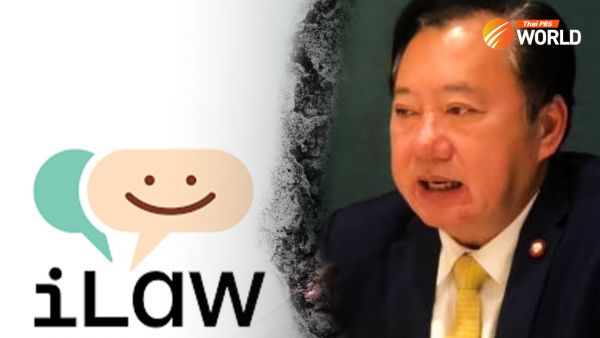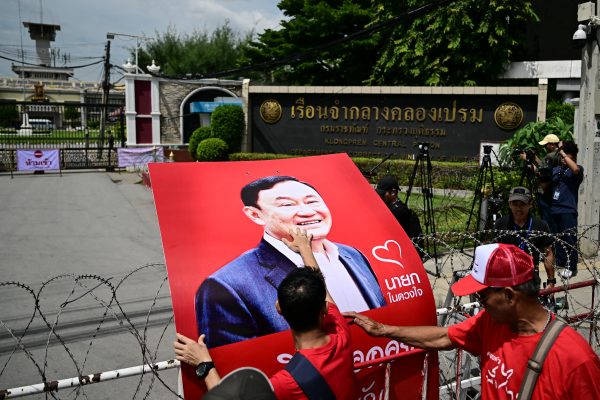OPINION: How rich is “rich”?

Billionaires living in luxurious penthouses, driving supercars, carrying designer bags, sipping cocktails on a yacht and people throwing dollar bills up in the air, these are some of the common perceptions of “rich people”.
The definition of “rich” is, however, getting more challenging for Thais, especially if they earn 25,000 baht a month (circa US$690) or more.
Who do you mean by “rich people”?
The definition of rich is being hotly debated on Thai social media recently, after a government sub-committee, overseeing the digital wallet scheme, began its consideration of how to exclude “rich” people from receiving the 10,000 baht from the government under the digital wallet scheme.
An option is to exclude those who earn a minimum monthly salary of 25,000 baht or who have a combined 100,000 baht or more in savings. Another choice is to exclude those who receive a monthly salary of 50,000 baht or who have a combined 500,000 baht or more in savings. The committee also considered whether only state welfare card holders should be eligible for the scheme.
That said, Thais took to social media to express their disbelief over the government’s definition of “rich”, posting jokes saying how they have suddenly become wealthy on 25,000 baht a month.
So far, the government has not reached any conclusions about the digital wallet scheme, including their definition of “rich”. What is certain, however, is that 25,000 baht a month is a typical salary for office workers, and even the minimum salary for new graduates working in large companies or those pursuing careers which are in high-demand in the job market.
According to Adecco Thailand, the monthly salaries for new graduates are between 12,000 and 40,000 baht, depending on the industry in which they are working. Junior level staff, with 1-5 years of experience, earn 15,000-80,000 baht, and 35,000-120,000 baht for senior staff. Those in management earn 50,000-300,000 baht, while top executive positions would get 100,000-600,000 baht.
25,000 baht is relatively low if you consider the daily expenses of living in the city, but this might be considered high in rural areas. The average salary in Thailand is not even enough to make ends meet, where the cost of living is skyrocketing, from public transportation and fuel prices, to daily necessities. Even though the Thai government has vowed for decades to reduce the cost of living, none of them have managed to do so.
Meanwhile, in pure economic terms, the Thailand Development Research Institute (TDRI) identifies “rich and wealthy” individuals as those who earn at least 40,000 baht per month, which is less than 20% of Thailand’s population.
The bigger problem
If we are honest, we have all dreamed of being rich at least once and, if you are already “rich”, you will only want more. In Thailand, you will often notice office workers and local villagers anxiously waiting for the 1st and 16th of each month, because that is when the national lottery is drawn. The first prize is six million baht per ticket, enough for millionaire-hopefuls to live their lives more comfortably.
The desire to be rich is not, however, only about becoming a billionaire or having a luxurious lifestyle, in Thailand it’s also about entitlement to social privilege, better opportunities and even respect.
In fact, it is not hard to miss the discrimination between the rich and poor and how they are treated differently in Thai society.
Thai mainstream media are partly to blame, particularly through soap operas, which often showcase wealth in all aspects, with characters living in large mansions, being a socialite or top executives, or simply being “rich”. At the same time, they depict the horrifying truth of living in poverty, with characters living in a tiny house that gets flooded on rainy days, or being physically abused by mafia figures for not paying their debts on time. This simply reinforces the view that being rich is the only way to freedom and happiness, even if it means having to throw their dignity away.
What is being represented in mass media is just a slice of the problem. The bigger problem is inequality, largely stemming from Thailand’s economic structure which allows such drastic inequalities to persist, including how certain groups of people become wealthy through corruption, monopolies and political nepotism.
A lot of the poorer people in Thai society are already struggling to make ends meet, but also lack access to social protections, quality education and even financial help to settle inherited debt. This is what most people, especially those who are well-off, do not see. When people don’t see the problem, they will keep echoing their own belief that everyone can be rich like them, naively or selfishly thinking that those who are poor are those who don’t work hard enough.
Government must find a clear definition
If we want to close the inequality gap, giving cash handouts may not be the best way to do it. The TDRI suggests that the government should focus more on investing in infrastructure, healthcare and education, because investing in these would have tremendous and long term impacts on the Thai economy, compared to one off benefits like the digital wallet scheme. At the same time, the government should provide more inclusive job opportunities, including upskilling and reskilling, improving social protections and better access to quality education.
Even if the government prioritises the easing of the financial burden for its people, no matter through which incentive, the government must have a clear definition of who is considered “rich” and who is considered “poor”, because these definitions are still, highly subjective.
By Nad Bunnag, Thai PBS World






